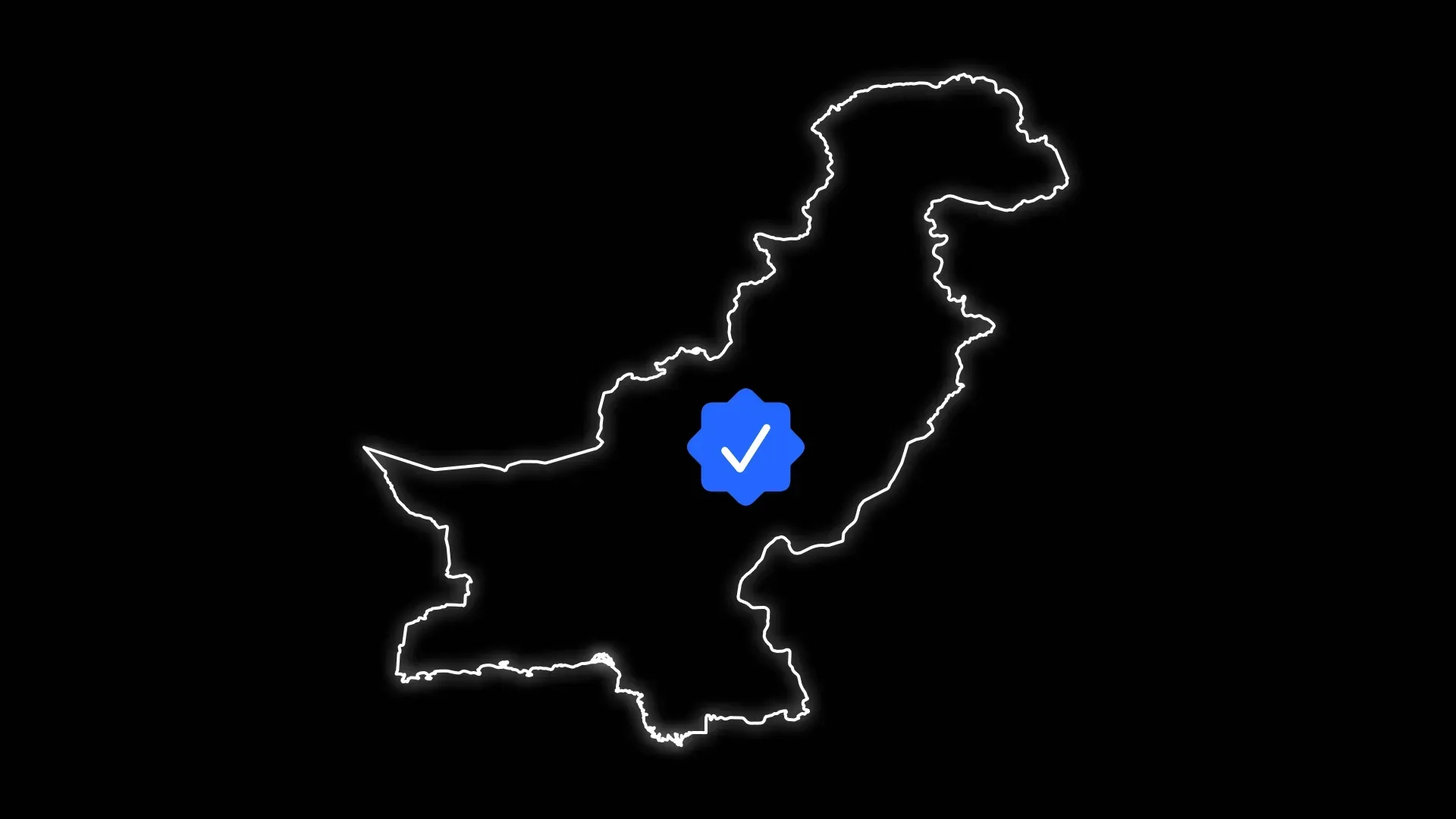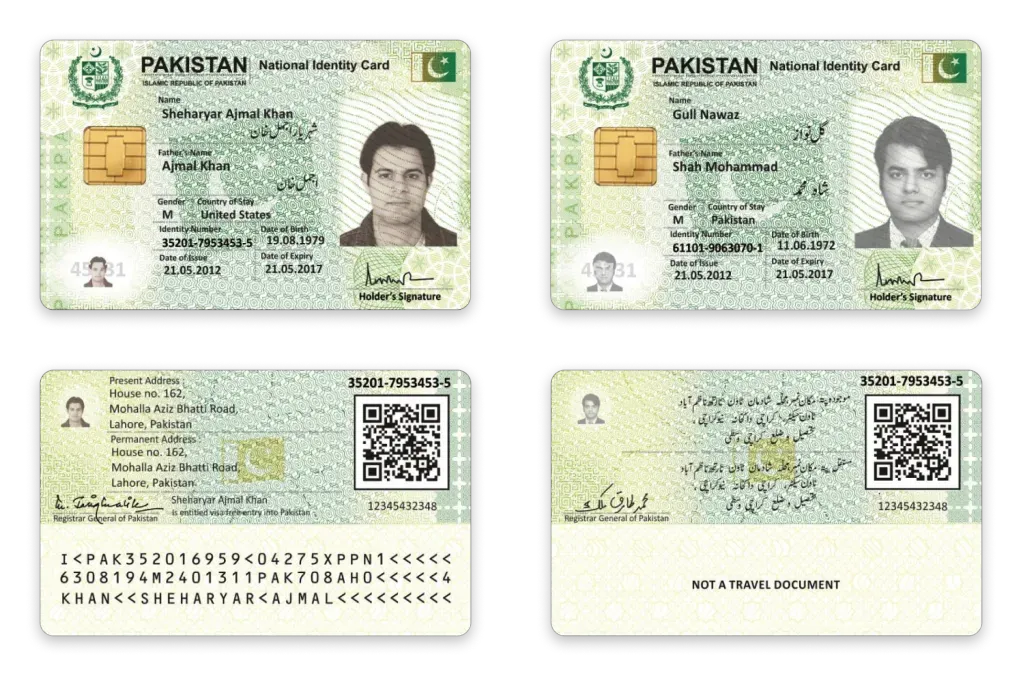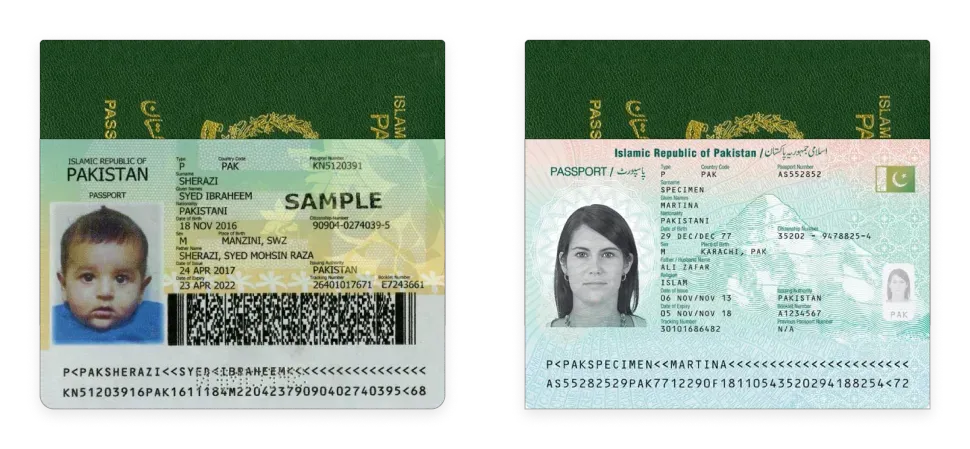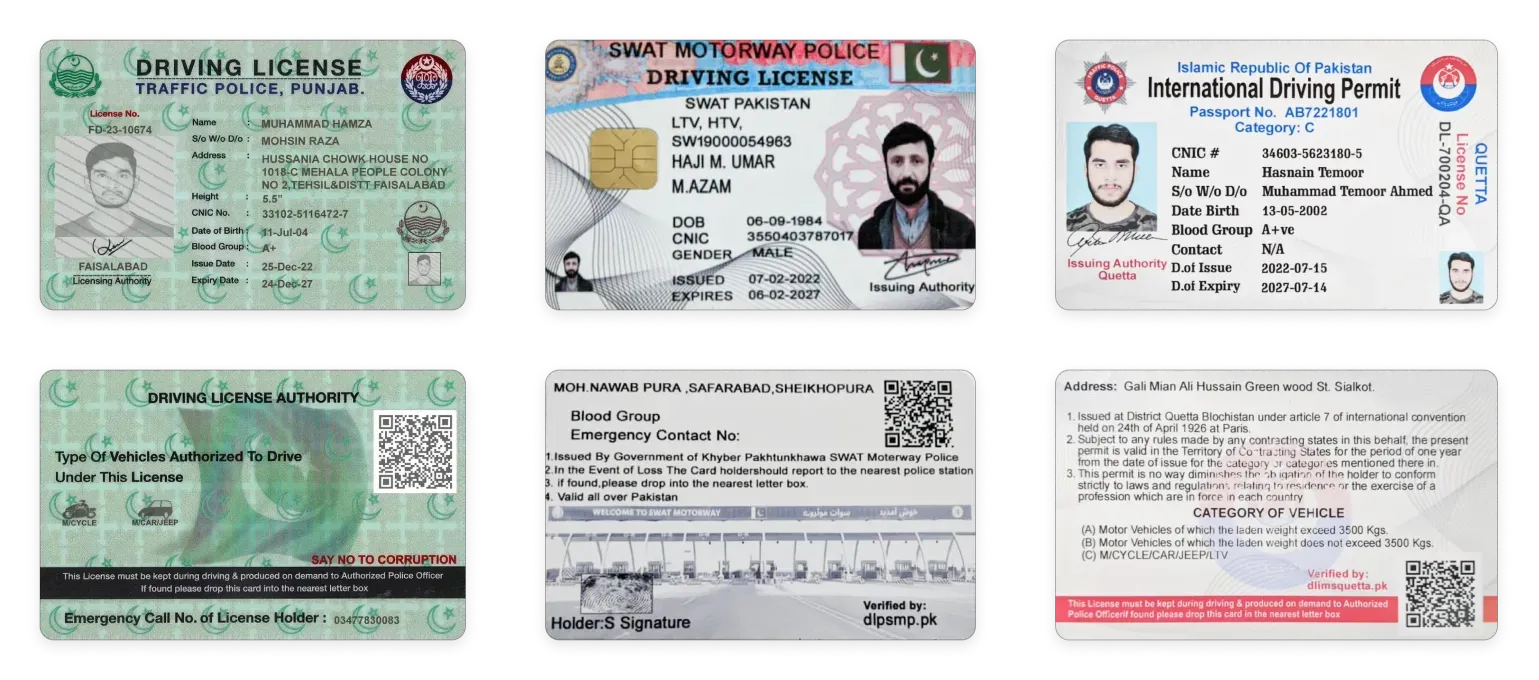
Identity Verification, KYC, and AML Compliance in Pakistan
Key takeaways
Pakistan has made significant progress in its AML/CFT prevention systems, earning recognition from the Financial Action Task Force (FATF) in 2019. These developments strengthen the fight against money laundering and terrorism financing, creating a safer environment for businesses operating in the country.Implementing robust KYC and AML processes is essential for businesses in Pakistan due to the diversity and complexity of identification documents such as CNICs, passports, and driver's licenses. Companies must adopt advanced tools to verify document authenticity and comply with regulatory standards.
Didit provides an innovative solution for identity verification and KYC/AML compliance in Pakistan. Its free and unlimited platform leverages advanced algorithms, facial recognition, and AML Screening to prevent financial crimes while enhancing user experience.
Pakistan's KYC and AML legal framework is constantly evolving, with key laws like the Anti-Money Laundering Act of 2010, AML/CFT Regulations of 2020, and Companies Act of 2017. Businesses must stay updated and adapt their compliance processes to align with these regulations and avoid penalties.
Have you ever wondered how businesses in Pakistan ensure their customers are who they claim to be? Welcome to the fascinating world of KYC (Know Your Customer) and AML (Anti-Money Laundering) in Pakistan, where identity verification and regulatory compliance go hand in hand in a complex yet essential dance.
Pakistan, a country of over 220 million people, has been in the spotlight of the Financial Action Task Force (FATF) for years. But did you know that the nation recently made remarkable strides in improving its AML/CFT prevention systems? In October 2019, the FATF recognized Pakistan’s significant progress in combating money laundering and terrorism financing.
So, what does this mean for businesses operating in the country? Simple: implementing robust KYC and AML processes in Pakistan is more critical than ever. Whether you’re verifying a potential customer’s identity or conducting due diligence, compliance in Pakistan is a game you can’t afford to lose.
And the documents? From the Computerized National Identity Card (CNIC) to passports and driver’s licenses, each document comes with its own peculiarities and verification challenges. Are you ready to navigate this compliance maze?

The KYC and AML Legal Framework in Pakistan: Regulatory Requirements
If you thought navigating the KYC and AML legal framework in Pakistan would be straightforward, think again. The country has undergone significant regulatory evolution, transitioning from FATF scrutiny to becoming a model of progress.
But how has this regulatory landscape evolved? Let’s examine the key laws shaping compliance in Pakistan.
Anti-Money Laundering Act of 2010
The Anti-Money Laundering Act of 2010 serves as the cornerstone of Pakistan’s AML framework. It introduced critical provisions for customer identification and verification, laying the groundwork for the KYC procedures we see today. Best of all, it established the Financial Monitoring Unit (FMU), the body responsible for overseeing suspicious transactions nationwide.
AML/CFT Regulations for Banks and Financial Institutions (2020)
Issued by the State Bank of Pakistan, the AML/CFT regulations outline detailed requirements for customer identification, document verification, and ongoing transaction monitoring. These regulations are a blueprint for financial institutions to meet KYC and AML standards.
Companies Act of 2017
Although not specifically an AML law, the Companies Act of 2017 significantly impacts KYC processes. It mandates the disclosure of beneficial owners and maintaining accurate shareholder records, effectively unmasking the true identities behind complex corporate structures.
Identity Verification in Pakistan: A Challenge for Businesses
The real challenges begin when businesses need to verify customer identities in Pakistan. The diversity of documents (from the Computerized National Identity Card to passports) presents unique features and security measures, not to mention literacy issues or the lack of official documents in some rural areas.
Authenticity is another hurdle. Document forgery is a persistent problem in the country, making it challenging to ensure the document used for identity verification is genuine. That’s why businesses operating in Pakistan need robust tools capable of detecting forgeries and inconsistencies.
The final challenge is balancing regulatory compliance with user experience. While customers demand fast processes, regulations require thorough checks. Achieving this balance is crucial.
Challenges in Document Verification in Pakistan
Document verification in Pakistan can be tricky. While the country has made significant efforts to standardize its identification documents, a wide variety of documents and formats remain in circulation. For example, the CNIC has undergone several iterations, each with unique security features.
Then there’s the quality issue. While newer documents meet international standards, including RFID chips in passports, older documents may lack advanced features.
Key Documents in Pakistan
When it comes to identity verification in Pakistan, three documents stand out, each with unique features that facilitate authentication and pose specific challenges for KYC and AML processes:
The Computerized National Identity Card (CNIC). This is Pakistan’s primary identification document, mandatory for all citizens over 18. The CNIC includes an embedded chip and 2D barcode storing biometric and personal data, such as the holder’s photo, fingerprints, and demographic details. There are also CNIC variants for Pakistanis living abroad, known as overseas CNICs, which share similar physical features for easier verification.

The Passport. Issued by the Directorate General of Immigration and Passports, Pakistan’s passport complies with International Civil Aviation Organization (ICAO) standards, ensuring global recognition. Each passport contains an RFID chip storing biometric data, including a digital photograph and, in some cases, fingerprints. It also features multiple security measures like microprinting, watermarks, and UV inks to prevent forgery.

The Driver’s License. Often considered the most challenging document to verify, driver’s licenses in Pakistan vary in design and security features depending on the issuing province. However, they generally include a recent photo, biometric data such as fingerprints or facial recognition, and holographic security elements. Some licenses also feature QR codes that can be scanned to verify authenticity in real time.

Didit: Transforming Identity Verification and KYC/AML Compliance in Pakistan
In the intricate world of KYC and AML/CFT compliance in Pakistan, Didit is here to revolutionize the game. How? By being the first and only tool offering free and unlimited KYC, allowing identity verification to pave the way for financial crime prevention.
Our identity verification platform is specifically designed to address the unique challenges of the Pakistani market. Our technological solution focuses on document verification, facial recognition, and an optional AML Screening service.
How does document verification work? We use proprietary algorithms to validate Pakistan’s key documents, detecting inconsistencies and ensuring that the documentation used is original and unaltered.
But we don’t stop there. Our facial recognition system goes beyond simple matching. We implement multiple biometric authentication methods (both active and passive), powered by custom AI, to ensure the person being identified is truly who they claim to be. Issues like masks, deepfakes, or pre-recorded videos become a thing of the past.
For those needing to meet AML requirements, we offer an AML Screening service that performs real-time checks against over 250 global data sets, including Politically Exposed Persons, sanctions, and other warnings.
Best of all, we’ve balanced rigorous compliance with a seamless user experience. Our identity verification process is fast, intuitive, and verifies identities in seconds.
Which Official Documents Does Didit Verify in Pakistan?
At Didit, we leave no stone unturned when it comes to identity verification in Pakistan. Our system handles the country’s three key official documents:
- Computerized National Identity Card (CNIC)
- Passport
- Driver’s License
Each document has unique features, and our system is designed to handle them all with precision and efficiency.
At Didit, we believe compliance shouldn’t be complicated or expensive. In fact, we’re the first and only unlimited free KYC tool on the market. So whether you’re dealing with the intricate details of the CNIC or navigating the complexities of passport verification, Didit is here to make your life easier.
Because in the world of KYC and AML in Pakistan, a little simplicity can make a big difference.
